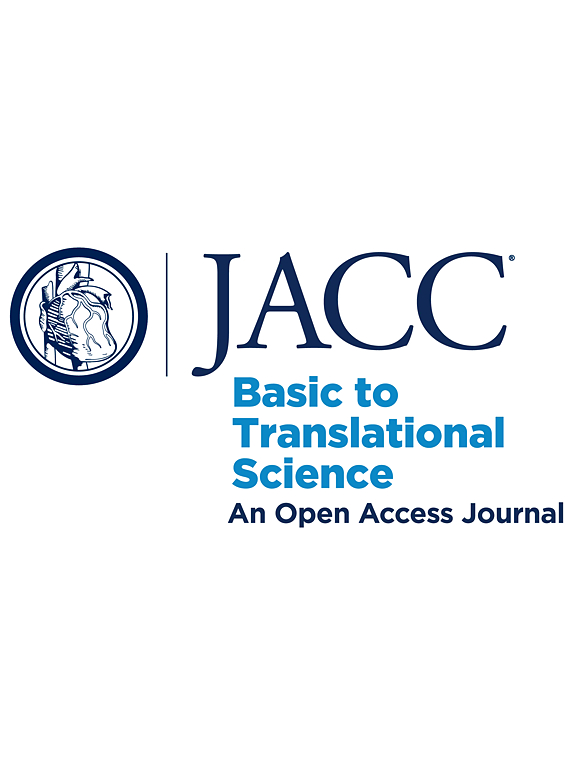Myocardial Infarction Platelet Gene Expression Signatures in Women
IF 8.4
1区 医学
Q1 CARDIAC & CARDIOVASCULAR SYSTEMS
引用次数: 0
Abstract
Although platelets play a critical pathogenic role in myocardial infarction (MI), few studies have characterized the MI platelet transcriptome in the acute or chronic setting in women. We report that transcripts associated with the actin cytoskeleton, Rho family GTPases, mitochondrial dysfunction, and inflammatory signaling are enriched in platelets from MI patients in the acute setting (n = 40, MI; n = 38, control) and do not significantly change over time. Furthermore, 79 platelet genes chronically elevated or suppressed after MI are associated with future cardiovascular events in an independent high-risk cohort (n = 135). Compared with women with MI with nonobstructive coronary arteries, platelets from women with MI and obstructive coronary artery disease were enriched in neutrophil activation and proinflammatory signaling pathways driven by increased tumor necrosis factor (TNF)-α signaling. Hierarchic clustering of the MI transcriptomic profile identified 3 subgroups with distinctive biological pathways and MI correlates. Our data demonstrate that platelets from MI patients are phenotypically different from MI-naïve patients in the acute and chronic settings and reveal a platelet transcriptomic signature with distinct clinical features.
求助全文
约1分钟内获得全文
求助全文
来源期刊

JACC: Basic to Translational Science
CARDIAC & CARDIOVASCULAR SYSTEMS-
CiteScore
14.20
自引率
1.00%
发文量
161
审稿时长
16 weeks
期刊介绍:
JACC: Basic to Translational Science is an open access journal that is part of the renowned Journal of the American College of Cardiology (JACC). It focuses on advancing the field of Translational Cardiovascular Medicine and aims to accelerate the translation of new scientific discoveries into therapies that improve outcomes for patients with or at risk for Cardiovascular Disease. The journal covers thematic areas such as pre-clinical research, clinical trials, personalized medicine, novel drugs, devices, and biologics, proteomics, genomics, and metabolomics, as well as early phase clinical trial methodology.
 求助内容:
求助内容: 应助结果提醒方式:
应助结果提醒方式:


